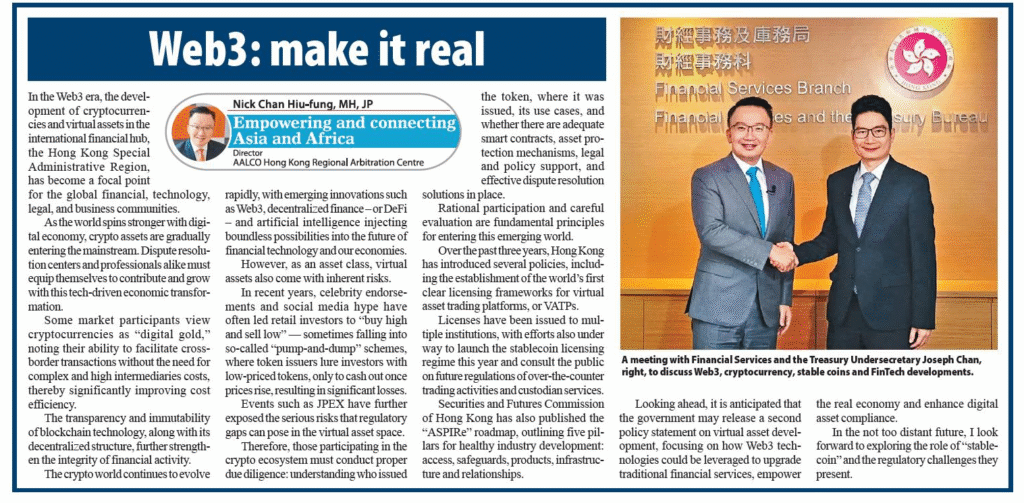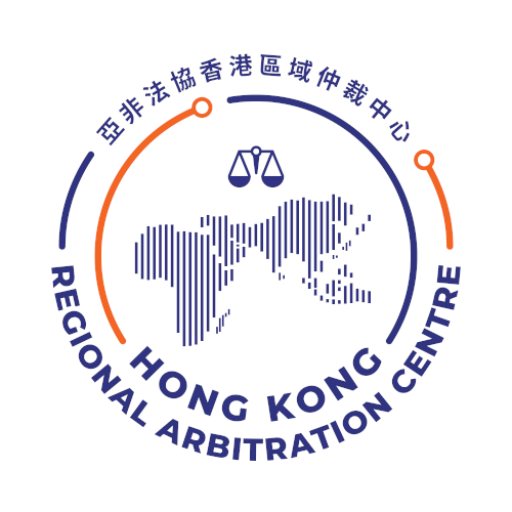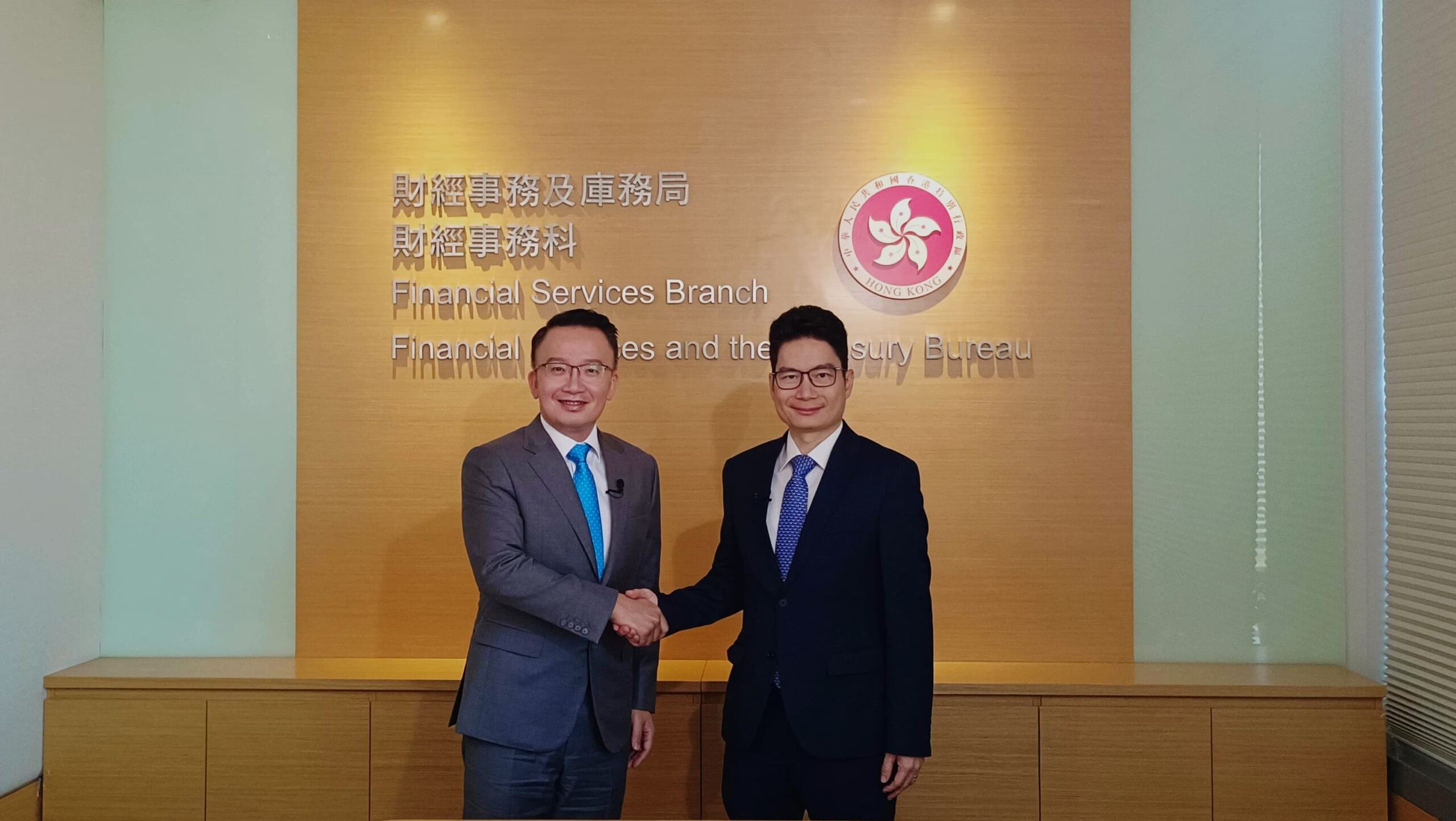- admin
- June 19, 2025
In the Web3 era, the development of cryptocurrencies and virtual assets in the international financial hub, the Hong Kong Special Administrative Region, has become a focal point for the global financial, technology, legal, and business communities. As the world spins stronger with digital economy, crypto assets are gradually entering the mainstream. Dispute resolution centers and professionals alike must equip themselves to contribute and grow with this tech-driven economic transformation.
Some market participants view cryptocurrencies as “digital gold,” noting their ability to facilitate cross-border transactions without the need for complex and high intermediaries costs, thereby significantly improving cost efficiency. The transparency and immutability of blockchain technology, along with its decentralized structure, further strengthen the integrity of financial activity. The crypto world continues to evolve rapidly, with emerging innovations such as Web3, decentralized finance (DeFi), and artificial intelligence injecting boundless possibilities into the future of financial technology and our economies.
However, as an asset class, virtual assets also come with inherent risks. In recent years, celebrity endorsements and social media hype have often led retail investors to “buy high and sell low” — sometimes falling into so-called “pump-and-dump” schemes, where token issuers lure investors with low-priced tokens, only to cash out once prices rise, resulting in significant losses. Events such as JPEX have further exposed the serious risks that regulatory gaps can pose in the virtual asset space.
Therefore, those participating in the crypto ecosystem must conduct proper due diligence: understanding who issued the token, where it was issued, its use cases, and whether there are adequate smart contracts, asset protection mechanisms, legal and policy support, and effective dispute resolution solutions in place. Rational participation and careful evaluation are fundamental principles for entering this emerging world.
Over the past three years, Hong Kong has introduced several policies, including the establishment of the world’s first clear licensing frameworks for virtual asset trading platforms, or VATPs. Licenses have been issued to multiple institutions, with efforts also underway to launch the stablecoin licensing regime this year and consult the public on future regulations of over-the-counter (OTC) trading activities and custodian services. Securities and Futures Commission of Hong Kong has also published the “ASPIRe” roadmap, outlining five pillars for healthy industry development: Access, Safeguards, Products, Infrastructure, and Relationships.
Looking ahead, it is anticipated that the government may release a second policy statement on virtual asset development, focusing on how Web3 technologies could be leveraged to upgrade traditional financial services, empower the real economy, and enhance digital asset compliance.
In the not too distant future, I look forward to exploring the role of “stablecoin” and the regulatory challenges they present.


